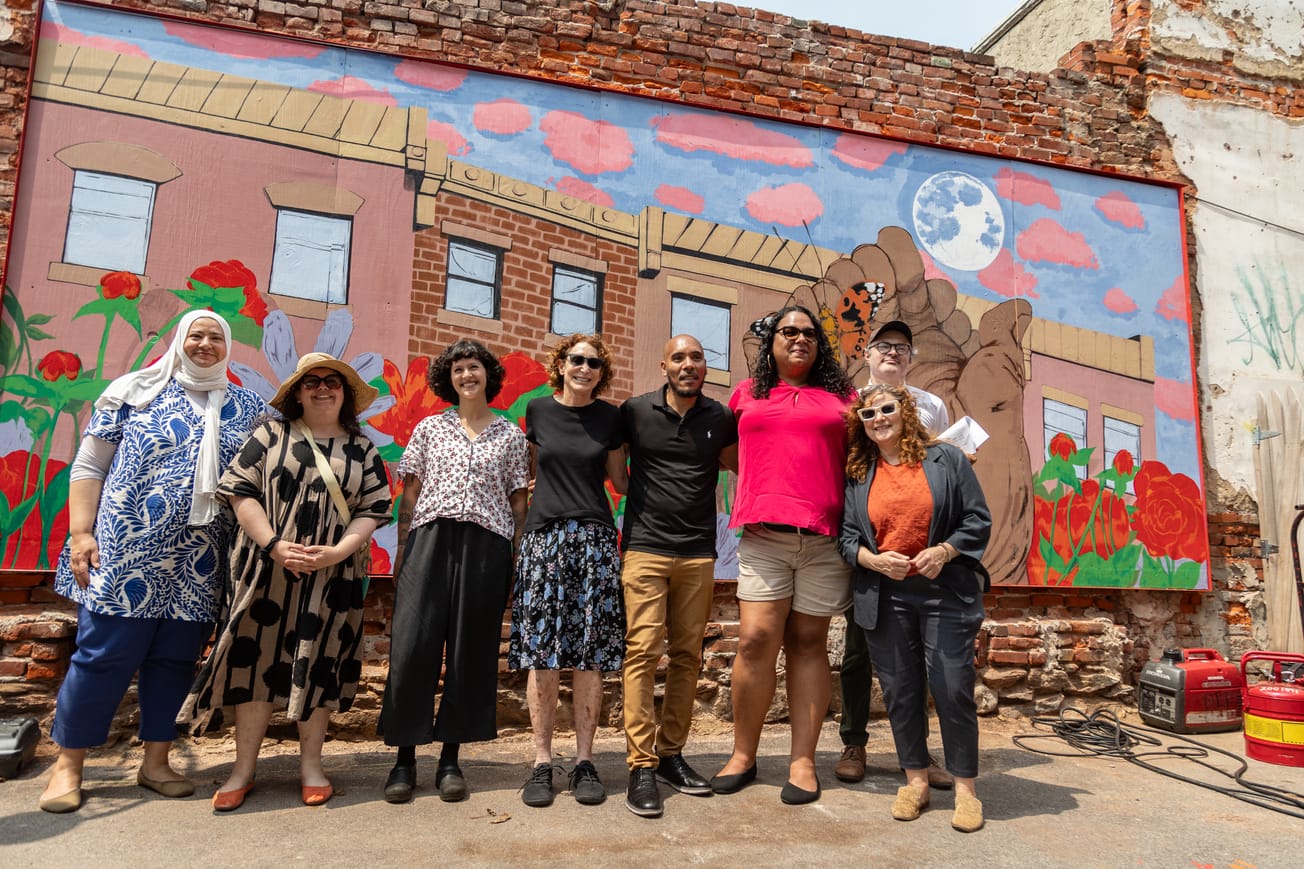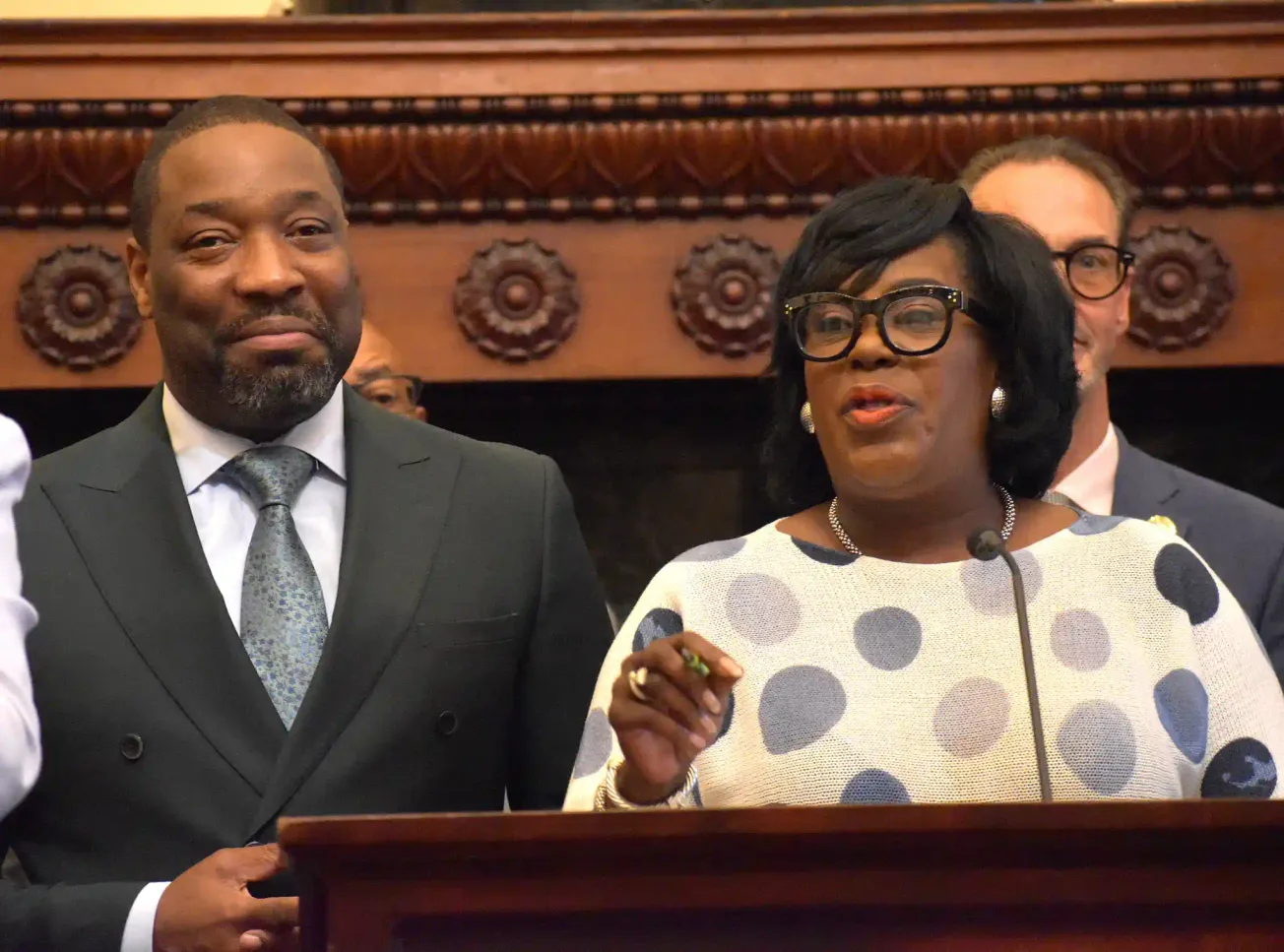After 35 people at the city’s largest men’s shelter tested positive for coronavirus last week, the Philadelphia Department of Public Health’s intake process resulted in 24 men stuck in one room overnight and shelter staff scrambling to get them cleared for transportation to one of the city’s emergency quarantine sites.
Following the health department’s recommendation, in early April, the city rented more than 100 rooms from the Holiday Inn Express in Center City to quarantine people who can’t do so at home, such as people experiencing homelessness, who have either tested positive or are presumed positive for coronavirus.
But for the guests and staff members at Sunday Breakfast Rescue Mission who tested positive, getting from the shelter at 13th and Vine Streets to the Holiday Inn Express at 13th and Walnut Streets was harder than anticipated. The Department of Public Health tested everyone at Sunday Breakfast on Thursday, May 7 after the shelter discovered through contact tracing that everyone there had been exposed to the virus. It was the first full-facility test the health department has conducted since the pandemic began.
While the city does mention the intake process in a referrals document on their website, Jeremy Montgomery, who runs Sunday Breakfast, said the health department did not give him advanced notice about the extent of the paperwork the city requires. It wasn’t until 8 p.m. on Saturday, May 9 that 33 of the 35 guests and staff who had nowhere else to quarantine were transported to the hotel. Test results started coming in at around 5 p.m. on Friday night.
“We were told that anybody who was positive would be transported to the quarantine site — period,” said Montgomery. “It wasn’t until Saturday morning, after 24 people were stuffed into a room overnight, that we were informed that this whole protocol, and medical screening, and evaluations was necessary for them to get transported.”
Once it was clear that the Department of Public Health would not immediately transport people who tested positive to the hotel, Montgomery and Erin Linden, Sunday Breakfast’s director of homeless services, moved the men who tested positive into an isolation space. All others, including guests who later received positive results on Saturday, slept in the shelter’s single occupancy room on the third floor. This was anxiety provoking for all since it was unclear who carried the disease and who did not, Montgomery said.
Holiday Inn Express placements take place during designated intake hours, which are from 8 a.m. to 8 p.m. seven days a week, city spokesperson Mike Dunn wrote in an email. While Sunday Breakfast notified the city during this timeframe, the required documentation wasn’t finished processing until the next morning, meaning the first group out of the 35 people were not transported until 10:30 a.m. on Saturday, Dunn said.
READ MORE: PHILADELPHIA’S LARGEST MEN’S HOMELESS SHELTER EXPERIENCES COVID-19 OUTBREAK.
Fred Gigliotti, the city’s director of emergency housing, said he visited Sunday Breakfast on Friday night to reassure men that while their situation was uncomfortable that night, transportation would come in the morning.
“There’s never been this many positive cases in our shelter system, so I think it was an overwhelming experience for the leadership at Sunday Breakfast,” Gigliotti said. “When I came to the site, part of what I really wanted to do was have a conversation with the men who tested positive to reinforce the fact that they will be accommodated on site. However, the process wasn’t going to happen immediately.”
Sunday Breakfast created the single-room isolation space in early March after guidance from the Centers for Disease Control and Prevention (CDC) advised shelters and homlessness service providers to section off quarantine and isolation rooms in case guests displayed symptoms or tested positive for COVID-19.
The room is 1,000 square feet with 24 beds separated six-feet apart. Previously, Sunday Breakfast provided the room to the city as a quarantine site before the opening of the Holiday Inn Express. Since then it has been used exclusively for their guests who were presumed to be positive for COVID-19. On Friday, exactly 24 men slept there.
Between Friday and Saturday, Montgomery and Linden, who both tested negative, worked in the isolation room without any personal protective equipment to help guests fill out the intake forms, they said.
“There were several guys in there who couldn’t even read and write,” Linden said. “We ultimately had to go in there and fill the forms out for the guys. There was one man who didn’t even speak English, so we had to go through his bag to see what his medications were to be able to list them out on the form. We had to do that because nobody from the health department had volunteered to come out and help us with the medical screening forms.”
According to Montgomery, the health department expressed skepticism about some of the guest’s medical histories, which resulted in back-and-forth phone calls between the health department and Sunday Breakfast before transportation could happen.
Due to the risk of staff exposure to the virus, all intakes are done by phone, said Liz Hersh, the director of the city’s Office of Homeless Service. Hersh added that she could not speak for why the health department did not assist Sunday Breakfast guests in person with the intake forms on Friday.
“We encourage all of our providers to work as closely as possible with [the health department] on all of this stuff,” Hersh said. “[The health department] tries very hard, and everybody’s doing the best they can. Frankly, we do the best we can and sometimes it’s fabulous and sometimes we walk away going, ‘You know, I wish that would have turned out a little bit differently.’”
It is not uncommon for the Holiday Inn Express intake and transportation process to take multiple hours per individual, Dunn wrote. The paperwork is to ensure that guests are placed inside quarantine facilities that can offer the correct amount of medical care for their needs, he added. However, all the guests tested for COVID-19 at Sunday Breakfast were asymptomatic, meaning that none of them required COVID-19-specific medical assistance.
The city’s testing guidelines were updated on Monday, May 4 to include this information regarding congregate settings, such as shelters: “Consider testing of asymptomatic persons who are part of a cluster of cases, especially in congregate settings where social distancing is difficult to maintain in consultation with PDPH.”
In the aftermath of Sunday Breakfast’s outbreak, the city is working on a plan to move vulnerable people out of homeless shelters, Philadelphia Public Health Commissioner Tom Farley said at a press briefing on Wednesday. Previously, the city advocated for people experiencing homelessness to seek shelter as opposed to sleeping on the streets.
“We are working with the homeless services department on what we can do to protect those shelters that have not had cases yet, including seeing if we can take people who are particularly vulnerable and move them out so that if there is an outbreak there those people are not infected,” Farley said.
According to Hersh, throughout the COVID-19 crisis, the pandemic has placed shelter providers in uncharted territory, calling on people who run shelters to act like medical professionals. As the pandemic endures, she hopes people can better manage communication about outbreaks and lower expectations, she said.
Editors: Zari Tarazona, Jillian Bauer-Reese / Designer: Jillian Bauer-Reese / TranslatorN/A
Kensington Voice is one of more than 20 news organizations producing Broke in Philly, a collaborative reporting project on economic mobility. Read more at brokeinphilly.org or follow on Twitter at @BrokeInPhilly.






